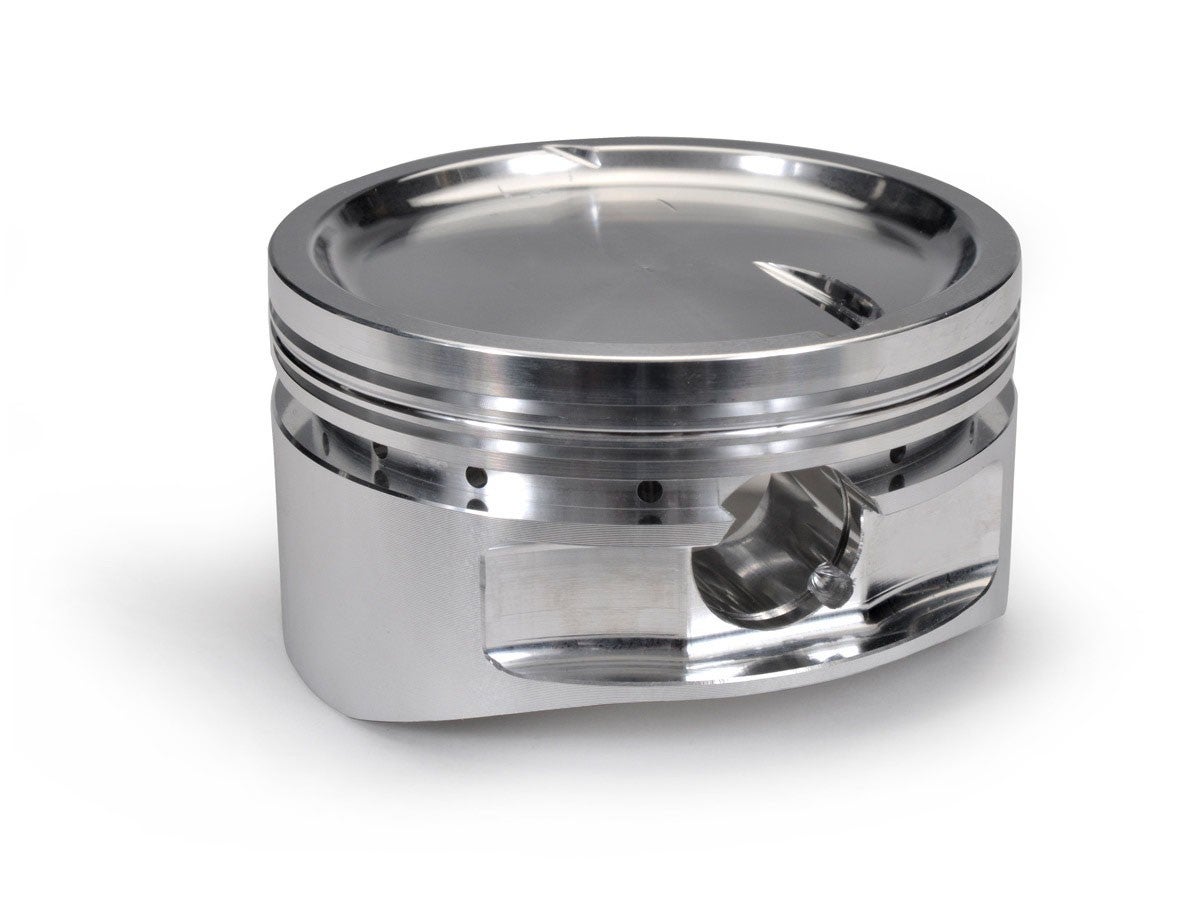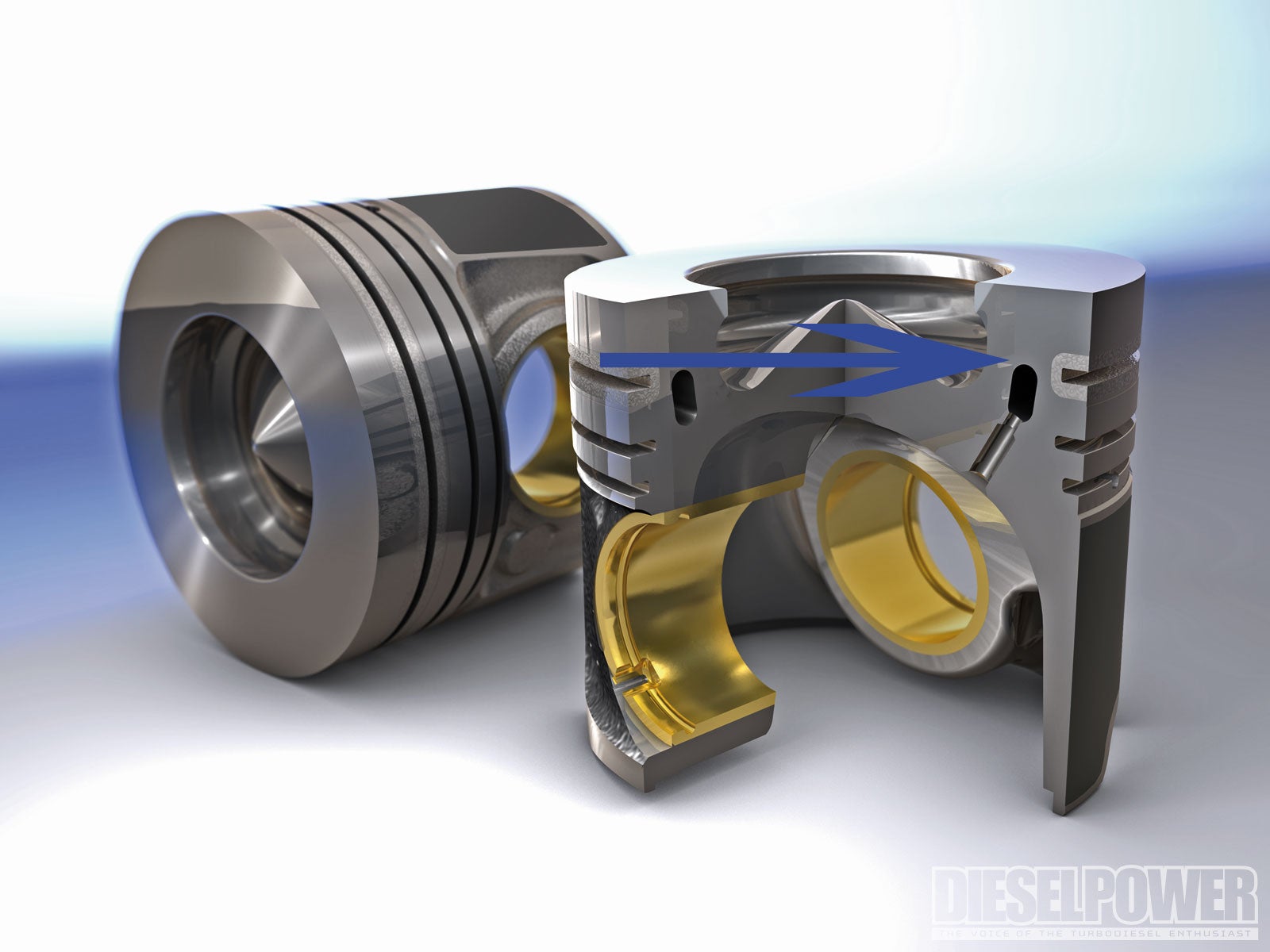 "efme" (efme)
"efme" (efme)
08/06/2014 at 10:39 • Filed to: None
 0
0
 18
18
 "efme" (efme)
"efme" (efme)
08/06/2014 at 10:39 • Filed to: None |  0 0
|  18 18 |
Are they truly more expensive to produce and engineer or is the sole motivation by manufacturers pricing them more expensive than their gasoline counterparts is to pay them for the gas savings up front?
 Zipppy, Mazdurp builder, Probeski owner and former ricerboy
> efme
Zipppy, Mazdurp builder, Probeski owner and former ricerboy
> efme
08/06/2014 at 10:41 |
|
It is more expensive to engineer them. Parts are more expensive too, because they're more durable.
 TheRallyStache
> Zipppy, Mazdurp builder, Probeski owner and former ricerboy
TheRallyStache
> Zipppy, Mazdurp builder, Probeski owner and former ricerboy
08/06/2014 at 10:43 |
|
This. A set of diesel fuel injectors will easily cost 4-5 times as much as a set of gasoline injectors.
 Jedidiah
> efme
Jedidiah
> efme
08/06/2014 at 10:43 |
|
Diesel engines have heavier blocks, which require more metal.
They require reinforcement in places like the mains and cylinder walls..
Diesel motors will often have more cylinder head bolts and will have forged rotating assemblies to handle the higher compression ratios.
So, yes. They require better/more materials than a comparable gasoline motor.
 Cé hé sin
> efme
Cé hé sin
> efme
08/06/2014 at 10:43 |
|
They do really cost more to make. One reason is the stronger construction needed, another is the fuel injection which has to produce startlingly high and precisely timed pressures.
You also have emissions regs which in the US require urea injection and a reduction catalyst.
 Chris_K_F drives an FR-Slow
> efme
Chris_K_F drives an FR-Slow
> efme
08/06/2014 at 10:44 |
|
What Zipppy said. If they were trying to offset any costs, it would be the forgone revenue from repairs because of the durability and longevity.
 As Du Volant
> efme
As Du Volant
> efme
08/06/2014 at 10:48 |
|
All of the above, plus they're also lower volume sellers than gas engines, so recouping the R&D cost is spread among fewer sales.
 FJ80WaitinForaLSV8
> efme
FJ80WaitinForaLSV8
> efme
08/06/2014 at 10:55 |
|
One of the largest costs, which no one has mentioned yet, are the extremely complicated emission systems that diesel vehicles are regulatorily forced to run. They have both EGR and SCR systems that need to clean a much dirtier combustion byproduct than the equivalent gasoline system. As far as a percentage of the price delta between a gas and diesel I'd hazard a guess that the emission system accounts for about 30% of the delta.
Manufacturers aren't colluding to artificially inflate diesel prices (the auto market is waaayyy too competitive). They are more expensive for legitimate manufacturing reasons.
 efme
> Jedidiah
efme
> Jedidiah
08/06/2014 at 11:20 |
|
so in a particular example of engine construction, is there a dramatic difference in the n54 and n54d bmw engines? both are 3L twin turbo.. one is gas. one isn't. curious if the diesel is significantly reinforced...
 You can tell a Finn but you can't tell him much
> efme
You can tell a Finn but you can't tell him much
> efme
08/06/2014 at 11:28 |
|
Diesel engines are significantly more expensive to make. In a former job I worked at a company that made pistons for OEM's. We made everything from magnesium lawnmower pistons to pistons for light duty (think 3/4 - 1 ton pickups) diesel trucks at our facility. The typical passenger vehicle piston was a one piece aluminum casting with a simple head shape that might have valve reliefs and a domed or dished head. Typically these would have some type of coating on the skirts for lubrication purposes and commonly would have the top ring groove anodized. (GIS: SBC piston pictured)

A typical diesel piston has a steel insert for the first ring groove. It would have an oil gallery behind the ring grooves for cooling, and the head has a complex dish with cavities designed to promote proper combustion. To cast them is more difficult because the steel ring needs to be properly placed in the mold cavity, and you have to place something in the mold to create the oil gallery. Anything placed in the mold needed to be preheated to a couple hundred degrees. The steel ring is also harder to machine than the aluminum and the dome may need to be machined, so machining costs are higher. (GIS: Diesel piston cutaway pictured)

I wasn't directly involved in the diesel products, so I don't know what they cost. But as a semi-educated guess I would say the diesel pistons were 3-4x the cost of a gas piston. And that is just one part on a diesel engine.
 Jedidiah
> efme
Jedidiah
> efme
08/06/2014 at 11:42 |
|
Not sure about that particular example. They will require different cyliner heads, which is an additional tooling cost. I'm not knowledgeable about the bottom end of those motors.
The Olds 350 diesel was recast from a gas Olds 350 block. It had bigger mains and a heavy duty crank and forged connecting rods. As a diesel motor, they sucked because they didn't have good enough head bolts and gaskets to handle the compression.
For comparison, It weighed about the same as the much larger big block 455. This is why all the pro-street Oldsmobiles either run nascar blocks or diesel blocks that have been converted back to gas because they have thicker cylinder walls that can be bored out further and stronger mains.
 norskracer98-ExploringTheOutback
> Cé hé sin
norskracer98-ExploringTheOutback
> Cé hé sin
08/06/2014 at 12:03 |
|
Even though diesel burns cleaner than regular petrol.
*edit* I guess they don't. I was wrong.
 ranwhenparked
> efme
ranwhenparked
> efme
08/06/2014 at 12:34 |
|
Higher production costs due to more robust construction combined with lower popularity, meaning less economies of scale. If 95% of all buyers ordered diesel engines, the gas option would likely be the more expensive choice.
 Cé hé sin
> norskracer98-ExploringTheOutback
Cé hé sin
> norskracer98-ExploringTheOutback
08/06/2014 at 12:55 |
|
Yes, diesels produce more particulates (so they need a filter) and nitrogen oxides (so they need Adblue in the US and will need it in the EU when Euro 6 is introduced).
 norskracer98-ExploringTheOutback
> Cé hé sin
norskracer98-ExploringTheOutback
> Cé hé sin
08/06/2014 at 12:56 |
|
Yeah, my grandfathers truck has the particulate filter and the DEF stuff.
 Cé hé sin
> norskracer98-ExploringTheOutback
Cé hé sin
> norskracer98-ExploringTheOutback
08/06/2014 at 13:08 |
|
Trucks have had to have this since the early 2000s, cars and light vans have got away in the EU until now.
 norskracer98-ExploringTheOutback
> Cé hé sin
norskracer98-ExploringTheOutback
> Cé hé sin
08/06/2014 at 14:01 |
|
1 tons didn't have them until like 2008.
 DipodomysDeserti
> efme
DipodomysDeserti
> efme
08/06/2014 at 17:56 |
|
The M57 in my 335D weighs 200 lbs more than the gasoline equivalent in the 335i, so my guess is yes. The diesel has a compression ration of around 18:1 and max boost pressure of 26.8 psi. That's way more stress than the gasoline engine is subjected to.
 IDROVEAPICKUPTRUCK
> Jedidiah
IDROVEAPICKUPTRUCK
> Jedidiah
08/11/2014 at 11:14 |
|
Meh, nevermind.